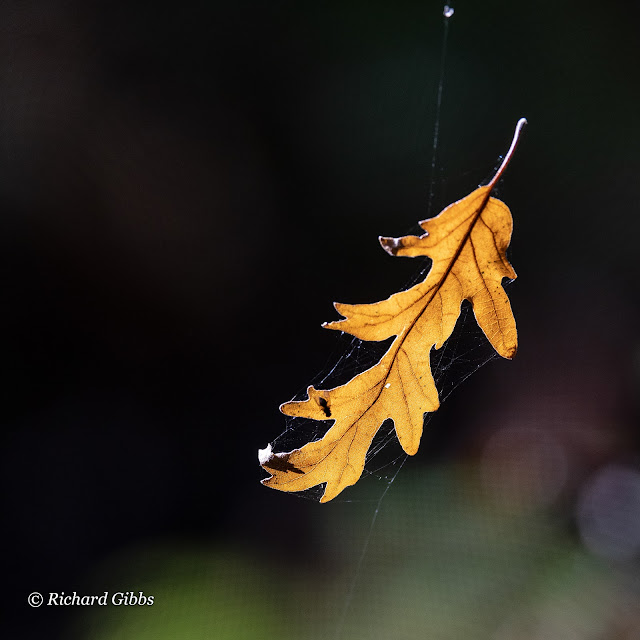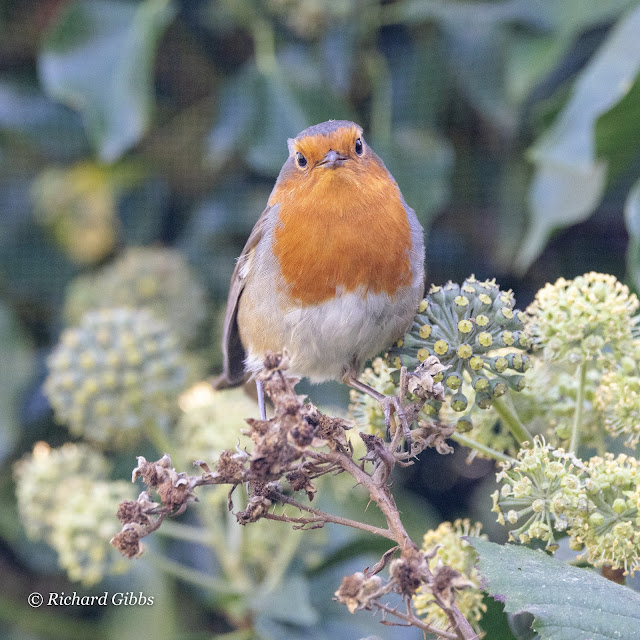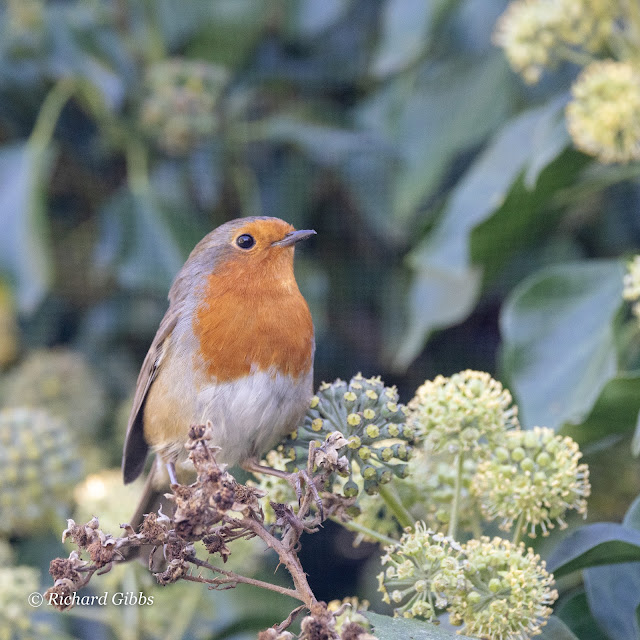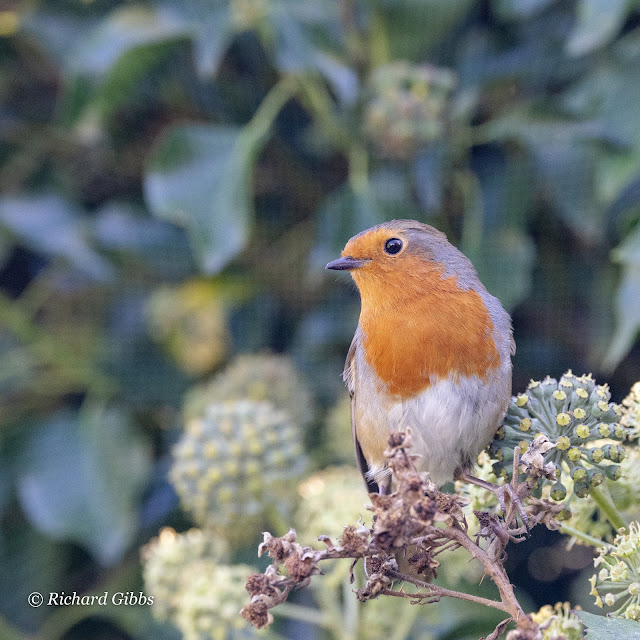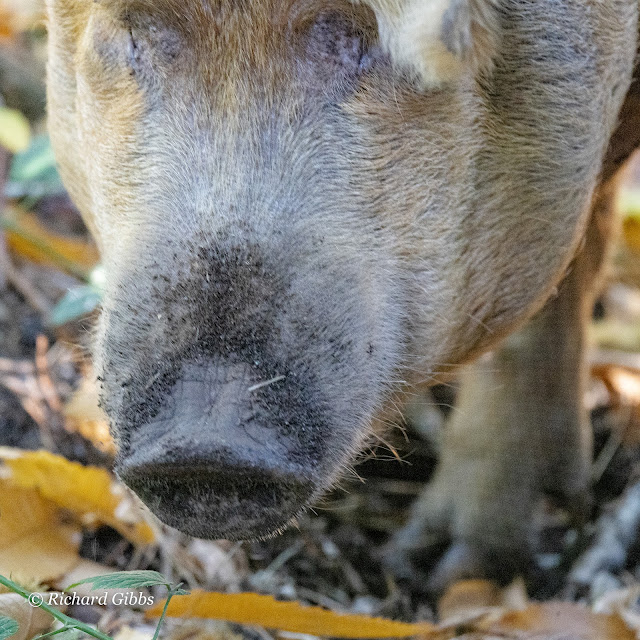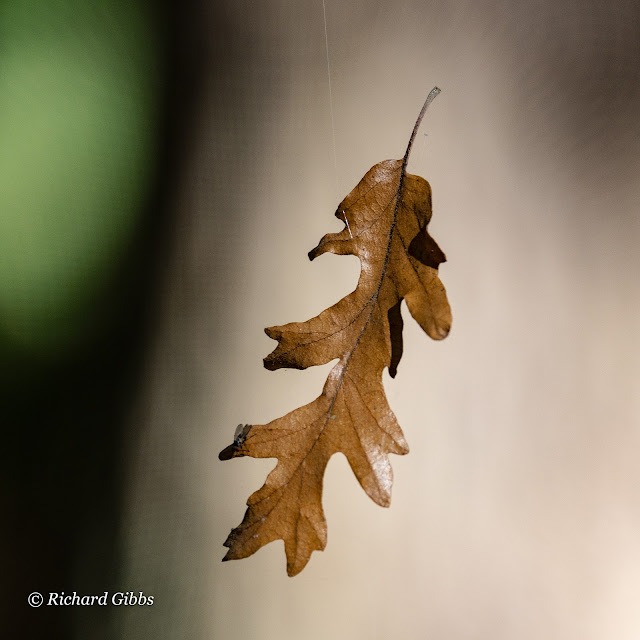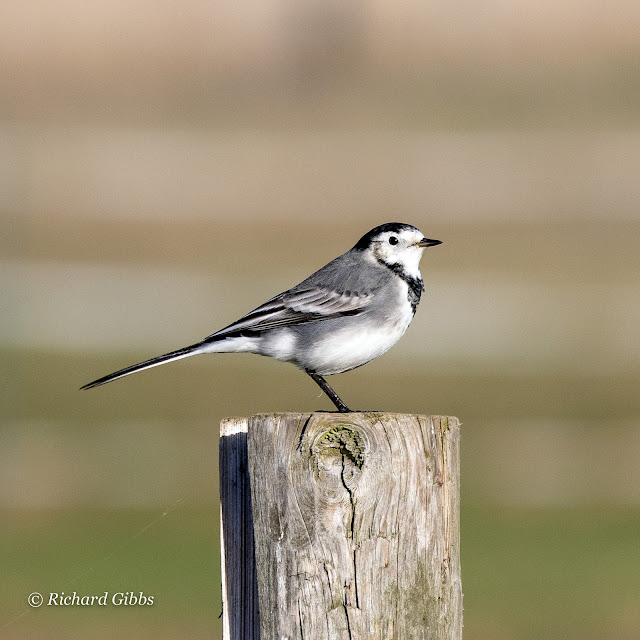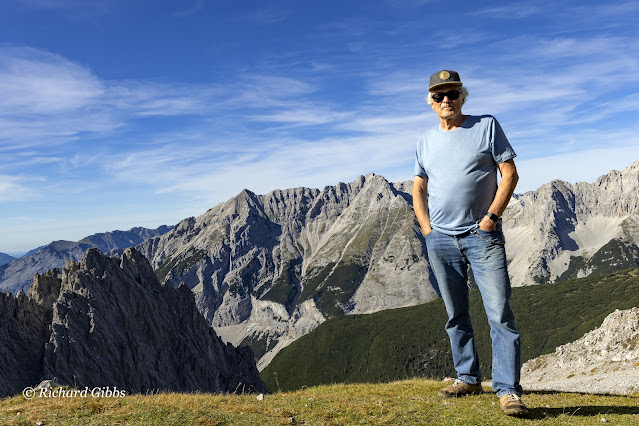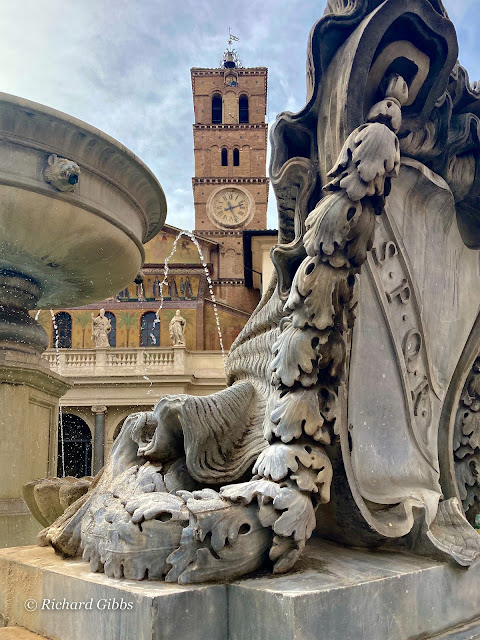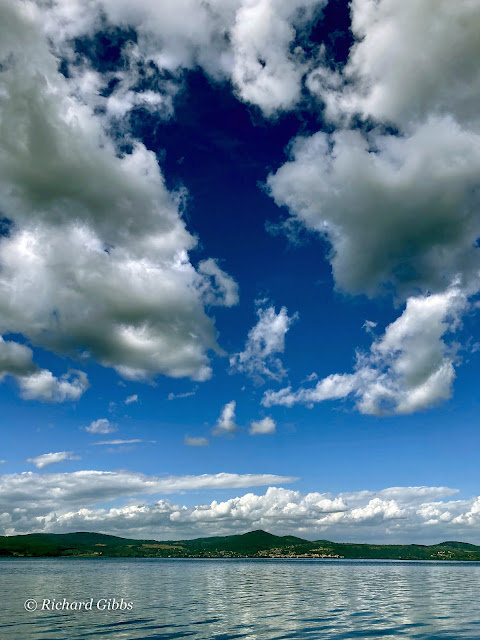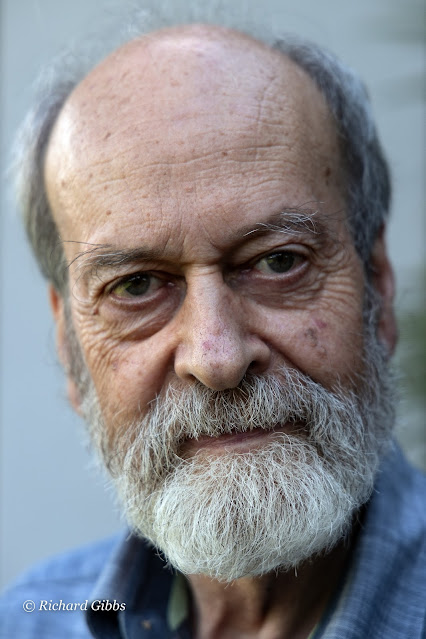Memories' Lanes
Think not that I am come to send peace on earth: I came not to send peace, but a sword.... (Matthew 10:34)
From Innsbruck it is all downhill. I have Lucio Dalla on my headphones and Anna Karenina to read. We pass Brennero at midday, bidding farewell to the Tyrol with its steep gorges, cantilevered autoroutes, rocky peaks and high pastures. Hello (again) Italia. Around half one we cruise past fruit farms, and vineyards, some olives and the occasional palm. Bolzano still in the mountains, with pinnacle castles, then down to the flat and into Verona. From here to Bologna we cross the vast plains of the Po Valley, with rice and maize and vegetable fields all flat under an azure sky.

Bologna reminds me, as I referred to in Part 1, of Easter 2015, and Amanda. I find it hard to grasp that it was so long ago, but the memories are still sharp. But I also have memories of visiting the city with my brother and parents the day that Elvis died, August 16th 1977, when the heavens wept. Are memories good to hold on to? If Amanda was with me, would she recognise the place? Would she have feelings, stirred in any way by familiarity? Would she remember climbing the 498 steps of the Asinelli tower? As I retrace paths we walked in the past, I begin to wonder whether it is healthy to hold on to all these recollections? Just as I have begun to question the value of looking at works of art, I now question whether memories are worth the pain they may contain.
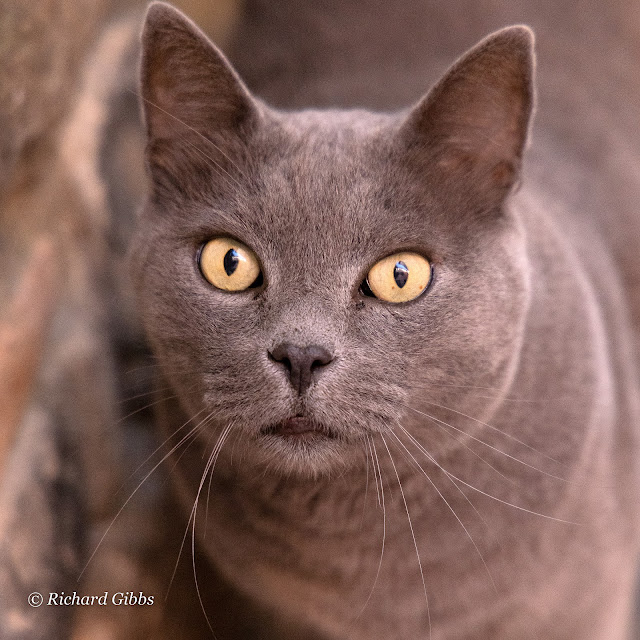
Non-stop train to Rome. The first half hour or so tunnelling through the Apennines, then out into the freshness of Tuscany and then spearing through Lazio, glimpsing the green waters of the Tiber, and rolling to a halt amidst the graffiti and the crowds of eternal Rome. I am almost overwhelmed by the crowds, a teeming mass of people from all across the world, hurrying there, hustling here.
It is hot. I wander lanes of memories: there I used to eat: here was my (ill-fated) pub, now a Pizzeria whose sign claims existence since 1984 (i.e. the year we were closed down by police....). The narrow path above Trajan’s Forum, from which Antonio and I played Hoopla with bicycle tyres over the stumps of antique columns by moonlight.

I have a snack lunch at the Tre Scalini in Via Panisperna, where once we shoved the tables aside after dinner and danced to the tunes of a harmonica....

From the rooftop I gaze across the emotionless façade of Santa Maria Maggiore, raising a martini to the stone folds of the Madonna’s cloak, then I descend to dine with friends.
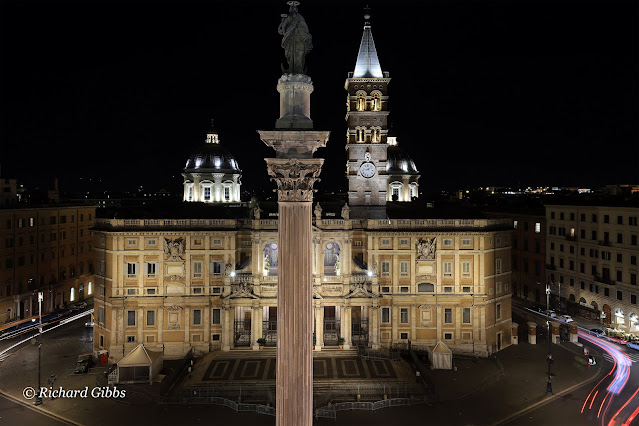
Over the next few days I encounter many old friends – ageing now, like me. Illness almost goes without saying, from burst gall bladders to cystic fibrosis, depression to breast cancer (male and female). Things fall into perspective – everyone is somehow worse off than everyone else – or are we all better off than somebody else? It’s life – get over it!

In the morning I take another wander down my memory’s lanes. Via Gregoriana, the Spanish Steps, an espresso in the Antico Caffè Greco (not that I was a frequent customer) in Via Condotti,
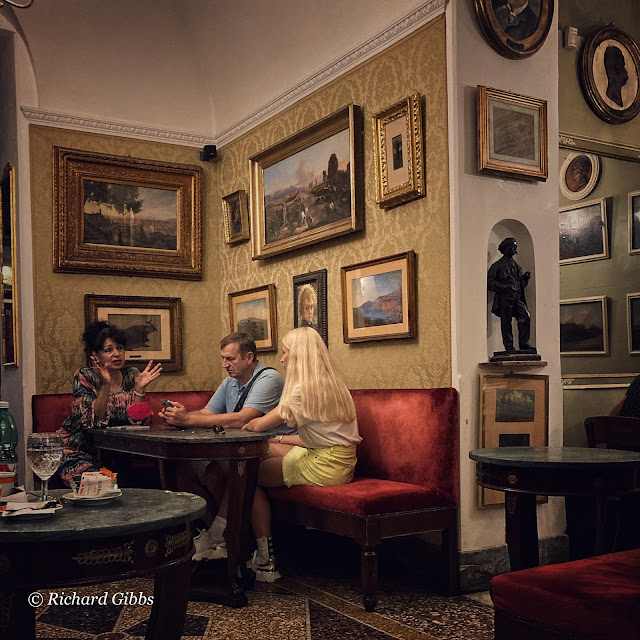
a glass of Greco di Tufo in l’Antica Enoteca in Via Della Croce (once a simple Vini e Oli where you could fill your bottles with wine from the Colli Albani). I pay my respects to the hooded statue of Giordano Bruno where he was burnt in the Campo de’ Fiori; I cross the Ponte Sisto where I passed twice a day for the bus to and from work in the 70s. In Trastevere I chance upon an open door to the back of the old Cinema Pasquino, where we watched English language films under the stars when they slid the roof open.

It looks like a bomb site now, but I am informed that it is to reopen this Autumn – which is glad news! I have a drink in the Caffè di Marzio, on Piazza S. Maria in Trastevere, where my flatmate was knifed one night.

I peer into the closed interior of the Pizzeria Ai Marmi (which for some reason I knew as Moroni’s) and lick my lips at the thought of their Supplì al Telefono (so called because the strands of mozzarella in the rice croquettes stretch like old fashioned telephone wires).
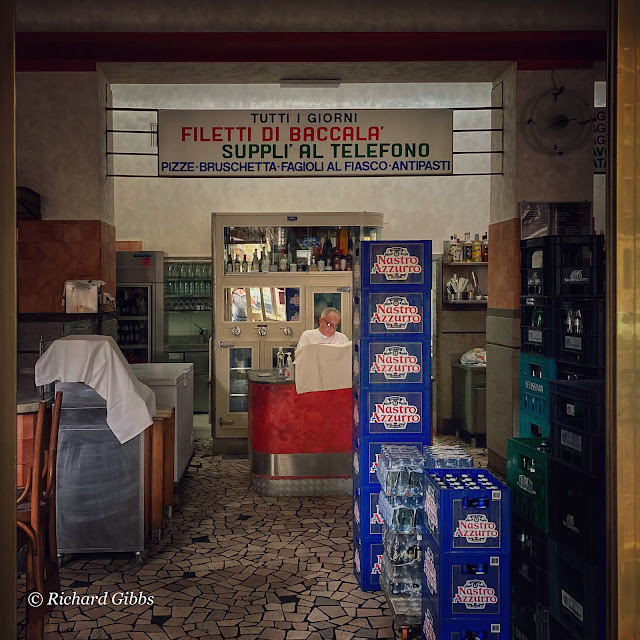
I stroll to the river, enjoying a Grattachecca (hand shaved ice, flavoured with fruit syrup) from an old kiosk on the Lungotevere, then cross the Isola Tiberina and wind through the Ghetto and back up to my hotel.
Before leaving Rome, I visit Nero’s Domus Aurea. Some forty years ago I managed to get into part of this dingy ruin, but at the time there was little to see and nothing to explain. It is now visitable in guided groups and various panels and pictures bring it to life, around 2,000 years since it was obliterated by Trajan when he bulldozed the foundations of his baths over the tyrant’s palace. The centrepiece of the modern visit is a Virtual Reality display which takes my breath away.

This show strips away the grime and infill of the millennia and eventually brings you out into the flowering gardens where grasses shimmer and trees rustle in the breeze as you look out across the valley to the Palatine Hill. Nothing I have ever seen, nor read, has made the ancient city come alive quite like this.
I meet my daughter, Hannah, at the airport and we stay for a short while in Trevignano Romano, on the shore of Lake Bracciano, where she began her life.

It is breezily pleasant here and we catch up with several more old friends, though sadly there are gaps in the line-up these days.

Then it is time to move on again and we motor up to Tuscany, stopping for a fishy lunch on stilts over Lake Bolsena. On Monte Amiata we enjoy the quiet and rustic isolation of our friends’ old house, and have a wonderful feast under the fig tree as the sun sets. Fegatelli and wine from Col d’Orcia; a glass of grappa by the fire. Wonderful.
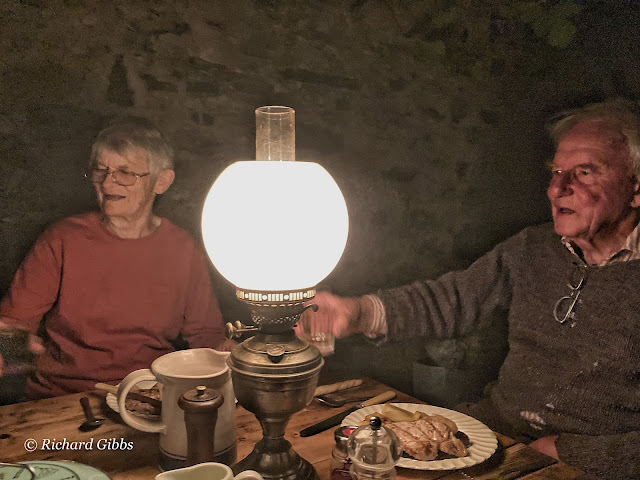
I have coffee in the morning with 94-year-old Corrado, when we manage to find the off/on switch to his coffee machine! His days are lonely since Concetta passed, but he maintains an interest in the ways of the world, and asks kindly about Amanda.

Time passes all too quickly here, and Hannah and I have to return the car to Pisa, where we meet up with my cousin Sarah for supper, then, subsequently, in the rain, we climb the slippery steps of the Leaning Tower – a strange first; strange as I am beginning to wonder if I will pass this way again.
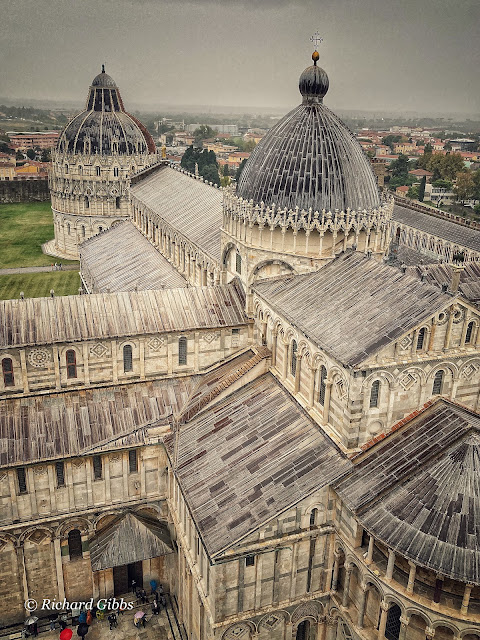
And then, wistfully parting from Hannah who will fly home, I take the train to Nice, where, again in the rain, I treat myself to a platter of seafood at Le Café de Turin in Place Garibaldi. Memories here are from years ago. I used to meet my parents at a campsite in Vence, and we traced Matisse and D H Lawrence together. Then, later, friends lived in the old town and Amanda and I helped carry bottles and bottles of Vin Rosé to their fourth floor flat. But now – all is changed. The Flower Market teems with tourists (again, I know I am one too!) who seem to be happy with Irish Pubs, chain restaurants, smoking shops, trinket sellers. Gone are the oyster shuckers and chilled wines of yesteryear! Perhaps it is time to ditch my memories!
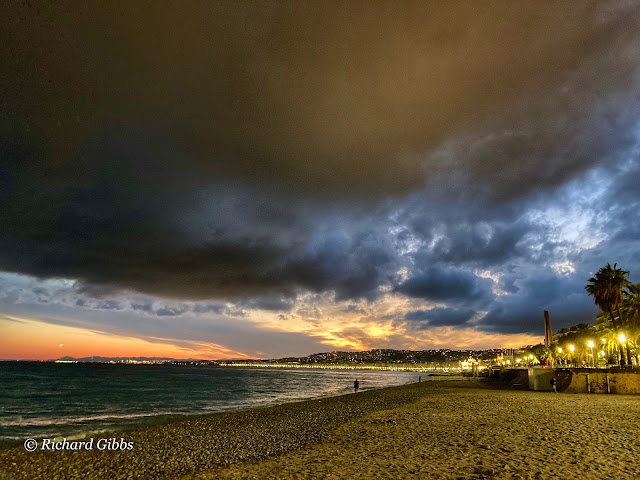
It is a coincidence that while I write these words, I am listening to Radio 3 on Sunday, and Michael Berkeley’s guest on Private Passions is Dr Jules Montague, whose book, Lost and Found: Why Losing Our Memories Doesn’t Mean Losing Ourselves, could hardly be more appropriate.
Another coincidence, perhaps, is that in yesterday’s Guardian there was a long piece by Ian Black, and his wife, Helen Harris. The article was entitled, As my brain is shrinking, so is my world, which might appear to contradict Dr Montague’s thesis. As someone from the Alzheimer’s Society told me, some years ago, however: When you have met one person with dementia – you have met one person with dementia..... There is, at least as far as we can tell, no absolute certainty about the way a person will behave or feel or live once the brain begins to deteriorate.
In fact, one of the things I learned from Ian Black is that a side issue he may be suffering from is Corticobasal syndrome (CBS), a type of frontotemporal dementia that is characterised by damage to the cortical and basal areas of the brain, which control movement, thinking, language and behaviour. It is sometimes known as atypical Parkinsonism. While [this] shares symptoms with Parkinson’s disease, including slow, stiff movements and tremors, it also causes problems with movement, memory, problem solving and speech. There may be changes to personality and loss of inhibitions. One of the most common symptoms is gradually losing the use of one limb, known as limb apraxia.
I find this most interesting, as Amanda has at times shown signs of tremors, and has progressively become slower on her right side, her right leg being less responsive than her left, her right arm weaker than the left. As Ian Black writes, A key element is a growing inability to use one side of the body. The underlying diagnosis can only be confirmed, however, in a post-mortem examination of the brain....
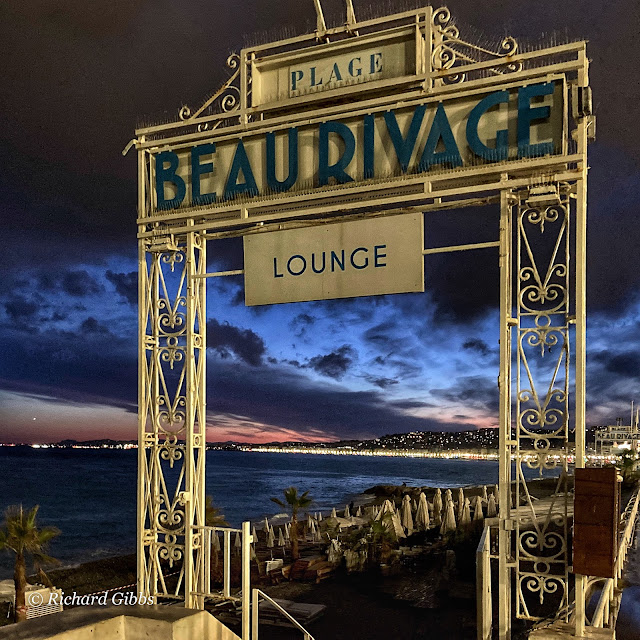
It is the end of the season. I turn my back on the south, on the sparkling Mediterranean which I have enjoyed so much in my life, and am borne at speeds of up to 300 kph, non-stop from Marseilles to Paris. Here I make my way to 7, Rue de Faubourg Montmartre, where I have supper chez Bouillon Chartier, where I have lunched and dined almost every time I have been to Paris for fifty years now.

I love the place, and I guess I would not love it if I had no memories of the meals I have had there. Meals with friends, such as the late Lindsay; with family such as brothers and parents; and with Amanda. Notably we went there for lunch on a Eurostar day trip from Harpenden on our wedding anniversary some years ago.... I don’t want to lose that memory.
So now, again, I am home, recovering, and preparing for the next phase of our lives. I have had enough of travel, for now, and am glad to be home. As the future slips into the past, I will continue to treasure memories, holding them for Amanda if for nothing else. She may have lost her memories, but she is still herself.
On my travels I have been reading Anna Karenina. I crawl to bed at home and read the last chapters. On page 809, Levin (the character closest to Tolstoy’s own ideas) mentions the soul, inadvertently connecting the conversation with the thoughts that occupied him so much. This prompts Levin’s half-brother Sergei Ivanovich to quote: ‘I have brought not peace but a sword,’ which is the very passage of the Gospel that had always disturbed Levin most of all.
I am startled, as these are almost the very last words (spoken by Christ) in Luis Buñuel’s film La Voie Lactée (The Milky Way), his surrealist film about two pilgrims on their way from Paris to Santiago de Compostela. The exact words in the St James Bible are: Think not that I am come to send peace on earth: I came not to send peace, but a sword.... (Matthew 10:34). And as I drift to sleep, I wonder if the coincidence of this passage appearing in two works of art currently on my mind has a particular significance. [No, it isn’t an excuse for Trussonomics.] An orthodox interpretation is that Christ is telling his disciples that there needs to be change and that change will not necessarily be entirely peaceful (it is not new to proclaim Christ a Revolutionary).
But perhaps there is a more homely interpretation, for me at least.
I need to be cruel, to be kind.....

